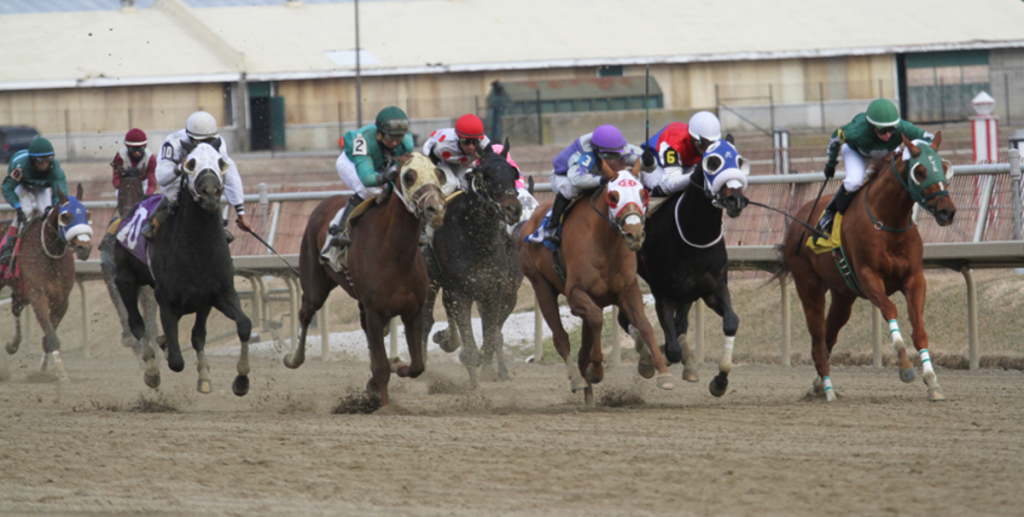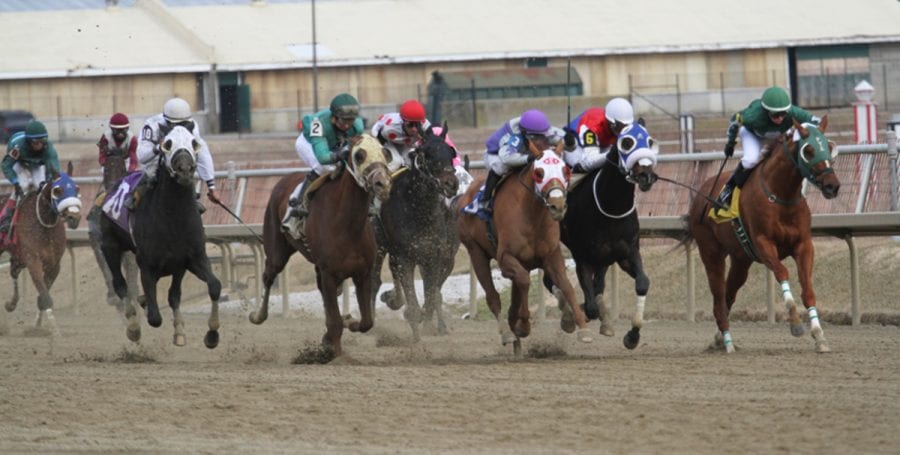
Photo by Laurie Asseo.
by Linda Dougherty
In the wake of the Indiana Horse Racing Commission’s May 12 decision to terminate its contract with Truesdail Laboratories because it failed to detect high levels of corticosteroids in test samples at Hoosier Park in March and April, officials at racing commissions in the mid-Atlantic region reported they have had no problems with the Tustin, Calif.-based company.
But they also acknowledged that they had not run quality assurance tests similar to those which led to Truesdail’s termination in Indiana.
Truesdail, which conducts drug testing for Delaware, Maryland, New Jersey, and West Virginia, was one of the first labs to receive full accreditation with the Racing Medication and Testing Consortium last April, as it was found to be in compliance with its new uniform medication policy. That made it one of the relatively few laboratories available to states seeking to adopt those uniform policies in their entirety.
Truesdail was notified May 12 by the IHRC that its contract was terminated when another laboratory, Industrial Laboratories in Colorado, acting under its quality assurance audit program, called positives in three different samples that Truesdail had previously called clear of any drugs beyond accepted threshold levels. Industrial Laboratories detected two different drugs, isoflupredone and betamethasone, well in excess of accepted threshold levels in the samples.
The missed positive tests were confirmed by referee laboratory LGC Sports Science, in Lexington, Ky.
“The concentrations of the drugs found were approximately two to five times the thresholds established by Indiana’s medication rule, which is the same threshold as the RCI model rule,” the IHRC stated in a press release May 12.
Officials at Truesdail said they plan to contest the IHRC’s decision to terminate its contract.
The situation was especially disconcerting for the Delaware Thoroughbred Racing Commission, which selected Truesdail as its official lab after having terminated its contract at the end of 2014 with LGC because of extremely long testing turnaround times. It signed a five-year contract with Truesdail.
Indiana also terminated its contract with LGC last year because of the same problem, and selected Truesdail to be its testing lab in March.
“We haven’t had any issues with Truesdail yet,” said John Wayne, executive director of the DTRC. “We just started our season [on May 16], and we’re going to give them a chance. Last year, the Commission terminated the contract with LGC with much disappointment. The integrity of a lab is very important to us; also, we thought that the continuity of testing is important to the region.”
Wayne said that he has spoken with Dr. Norman Hester, the chief science officer at Truesdail. Hester admitted that the lab had missed detecting the positive results at Hoosier but assured him that corrective action would be taken; Wayne said that he appreciated Hester’s candor.
Wayne also said that the Commission intends to take some quality assurance (QA) steps and send live samples to another lab.
Truesdail has been the testing laboratory for more than two years for the New Jersey Racing Commission, without incident.
“We’ve had no problems or issues with Truesdail since they became our testing lab,” said Frank Zanzuccki, executive director of the N. J. Racing Commission. “Prior to Truesdail, the N. J. State Police did our testing. We decided to privatize and have been very satisfied with the work that Truesdail does. Of course, we’re concerned with what occurred in Indiana and have been in contact with Truesdail, which has provided us with an explanation and said they took corrective action to ensure it won’t occur again.
“We will develop a QA program immediately; we haven’t had one for the last couple of years,” added Zanzuccki. “But in light of what’s happened, we have decided to pursue a QA program.”
Mike Hopkins, executive director of the Maryland Racing Commission, also reported that there have been no issues to date with Truesdail but that Maryland, like the other states, has not audited Truesdail’s work.
“No problems with Truesdail, and we’ve used them for the last 18 months,” said Hopkins. “Auditing or spot-testing is not in our contract. We don’t have any concerns at this point, but we’ll watch what’s going on.”
Efforts to reach John Myers, executive director of the West Virginia Racing Commission, were unsuccessful.








